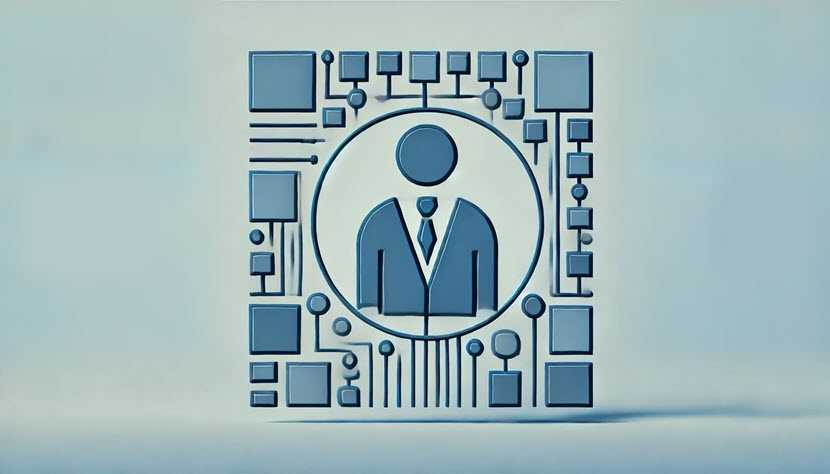A frontline worker directly serves customers or handles core operational tasks across various sectors.

What Is Frontline Employee?
A frontline employee is an individual who represents an organization through direct interactions with clients, patrons, or critical operational processes. This role often involves immediate engagement with the public, equipment, or core services. Frontline employees are responsible for tasks that maintain the continuity and quality of business activities, including customer assistance, product assembly, public safety, and other industry-specific operations.
What Is Another Name for a Frontline Worker?
Some organizations refer to a frontline worker as a first-line operator, on-the-ground staff member, or primary point-of-contact associate. These alternative terms reflect similar responsibilities and emphasize the direct nature of their role in delivering services or products.
Where Do Frontline Employees Work?
Frontline employees serve a wide range of industries. They perform crucial duties in environments that involve consistent public or operational interaction. Examples include:
- Healthcare (hospitals, clinics, nursing homes).
- Retail (supermarkets, department stores).
- Manufacturing (factories, assembly lines).
- Hospitality (hotels, restaurants).
- Transportation (airports, railway stations).
- Public Services (law enforcement, firefighting, emergency response).
Frontline Worker Jobs
Individuals in these sectors undertake various frontline positions that demand a practical and direct approach to daily responsibilities. Examples include:
- Nurse.
- Cashier.
- Customer service representative.
- Assembler or machine operator.
- Waitstaff.
- Delivery driver.
- Police officer.
- Emergency medical technician.
Frontline Workers Responsibilities
Frontline workers oversee tasks essential to organizational success. Below are the major categories of responsibility.
Direct Client Interaction
Frontline workers greet customers, listen to concerns, answer questions, and resolve issues. They maintain a professional demeanor while providing information or guidance.
Operational Execution
Many frontline roles involve core production or service tasks. Nurses administer treatments, machine operators manage equipment, and delivery staff organize logistics.
Safety and Compliance
Frontline employees adhere to regulations, follow established safety protocols, and report incidents. They observe health standards, manage hazardous materials when relevant, and maintain secure premises.
Team Collaboration
Frontline workers coordinate efforts with peers and supervisors. They communicate operational updates, share resources, and participate in collective problem-solving.
Why Are Frontline Workers Important?
These employees form a critical link between an organization and its stakeholders. The subheadings below illustrate their broader significance.
Organizational Continuity
Frontline workers sustain consistent service delivery. Their presence ensures uninterrupted operations, addresses immediate customer needs, and upholds core business functions.
Public Perception
Frontline employees shape how the public views an organization. Their professionalism, responsiveness, and approach to problem resolution influence customer satisfaction.
Foundation for Growth
Day-to-day insights from frontline workers inform strategic decision-making. Management teams rely on frontline feedback to refine products, services, and workflows.
What Challenges Do Frontline Workers Face?
Frontline roles demand constant engagement and adaptation. Below are the challenges that influence the experience of these employees.
Exposure to Workplace Hazards
Healthcare practitioners, factory workers, and public service officials face physical risks. Protective equipment and strict safety measures are necessary to reduce accidents.
High Stress Levels
Continuous customer interaction and operational pressures create mental strain. Stress management resources and supportive leadership reduce potential burnout.
Limited Career Advancement
Some frontline positions offer fewer clear pathways to promotion. Training and mentorship programs address this concern by broadening skill sets and opportunities.
Work-Life Balance
Irregular or extended hours affect personal schedules. Adequate staffing and structured scheduling support a healthier work-life balance.
How to Support Frontline Workers?
Targeted initiatives enhance retention, morale, and overall performance. Below are the key support strategies.
Comprehensive Training
Organizations equip frontline employees with the necessary skills through orientation programs and ongoing instruction. This approach includes both job-specific tasks and interpersonal communication techniques.
Fair Compensation and Benefits
Competitive wages, healthcare coverage, and retirement plans demonstrate recognition of frontline contributions. Transparent policies foster trust and loyalty.
Health and Safety Measures
Provision of proper equipment, regular risk assessments, and established protocols protect employees from potential hazards. Safety briefings and drills further bolster preparedness.
Recognition and Feedback Channels
Acknowledgment of accomplishments and open lines of communication encourage job satisfaction. Opportunities for employees to voice concerns or ideas reinforce a positive work culture.
What Is the Impact of Technology on Frontline Workers?
Technological advancements influence frontline roles by automating tasks and enhancing data-driven decisions. Below are the core aspects of this impact.
Automation and Robotics
Industries that adopt automated systems often streamline repetitive processes. Frontline workers may oversee machinery or maintain specialized equipment.
Mobile and Digital Tools
Applications on handheld devices enable immediate data entry and real-time updates. Such tools improve efficiency in healthcare, retail, and logistical operations.
Remote Collaboration
Frontline teams coordinate with remote experts to solve issues swiftly. Cloud-based platforms support information sharing and reduce resolution times.
Data Analytics and Tracking
Detailed performance metrics help organizations identify gaps and optimize workflows. Frontline employees contribute by recording accurate data and interpreting basic results.
What Is the Future of Frontline Workers?
Evolving market demands, emerging technologies, and changing customer expectations will shape frontline roles. Workers with adaptive skill sets and cross-functional expertise remain integral to organizational resilience. The continuing development of robust support systems, advanced training programs, and responsive leadership will reinforce the critical nature of frontline employees in every industry.